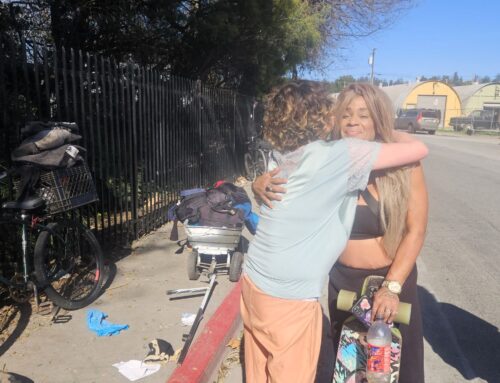Santa Cruz Local offers its Watsonville City Council meeting recaps free as a public service. But our journalism takes time and money to produce.
Santa Cruz Local depends on memberships from people like you to make sure vital information can be available to all. Can we count on your help?
Editor’s note: This story and headline have been updated to reflect the city council’s second vote on the eviction ban, made at about 11:15 p.m. Tuesday.
WATSONVILLE >> Eviction protection for renters in Watsonville will extend until Jan. 15, the Watsonville City Council decided Tuesday.
A ban on evictions will protect tenants who have lost money due to COVID-19. The council voted 5-1 for the ban, with Mayor Rebecca Garcia and Councilmembers Aurelio Gonzalez, Felipe Hernandez, Lowell Hurst and Ari Parker in favor. Mayor Pro Tempore Trina Coffman-Gomez voted against.
The emergency vote, made at the end of the meeting at about 11:15 p.m. after many attendees left, reversed the council’s earlier decision Tuesday. The council had decided to let eviction protections end when state rules expire Sept. 1.
The city’s new ban on COVID-related evictions include the following rules:
- Tenants have up to 7 days after rent is due to give notice to their landlord that they will not be able to pay rent because they have been affected by COVID. Documentation, such as a pay stub or a letter from the employer, will be required eventually.
- The ban will end Jan. 15.
- Landlords who serve eviction notices for tenants not impacted by COVID-19 are required to provide tenants with a list of housing/legal resources and facts about the eviction moratorium.
The eviction ban does not set a repayment plan for tenants. Landlords can set up their own repayment plan, which may work against the tenant, Watsonville Housing Manager Carlos Landaverry said.
“A lot of landlords, they’re already working with their tenants. They already have informal agreements,” Landaverry said. “We hope with this ordinance that those landlords and tenants continue making those agreements.”
If they don’t come to an agreement, landlords can require payment by a certain date. When the moratorium ends, the tenant may be evicted, Landaverry said.
Part of the motion that passed was a proposal for city staff to develop a program for rental assistance. The program would have use federal CARES Act funding to help tenants pay rent. The program would directly pay landlords of tenants who can’t make rent due to COVID-19 losses. A previous, similar city-funded program, administered by the Watsonville nonprofit Community Action Board, was extremely popular and ran through its funds quickly.
In the earlier decision, the effort to resume a city ban on evictions failed despite a 4-1 vote because the emergency rule required five votes to pass. Garcia, Gonazalez, Hernandez and Hurst were in favor. Parker was against. Parker wanted an end date for the ban, instead of a sunset timed with the end of the COVID-19 emergency. Councilmember Francisco Estrada was absent, due to the recent birth of his daughter. The meeting was held online only because of pandemic restrictions. Coffman-Gomez had internet problems and was absent for several crucial minutes of the meeting including the earlier vote.
COVID update
City Manager Matt Huffaker said the virus continues to disproportionately harm South County residents and Latinos. Monday, Santa Cruz County had 1,698 confirmed COVID cases, 1,252 of which were active. Watsonville residents accounted for 896 of the cases, or 52%, though they make up 20% of the county’s population.
Latinos accounted for 59% of known cases. About 33% of the county is Latino. Councilmember Aurelio Gonzalez said Tuesday he and his wife were among those recovering from COVID.
Watsonville resident Rosa Noriega said in public comment that city leaders like to tout that the city gives protective equipment to farmworkers. Yet her mother, a farmworker, didn’t receive an N-95 mask until Monday after several days of poor air quality due to wildfires.
“This is a slap in the face,” Noriega said. “My mother has been out there, working in the fields, picking your berries, for what? She’s exposing herself. She’s on the front lines, and she barely got her mask. I know that’s the responsibility of the grower to provide the masks. I know that. I understand that.
“If we had a mutual aid fund, if we made that a priority as a city, in which we redistributed these resources to farmworkers, to the people who make this city go round, don’t you think she would’ve had access to a mask, to proper materials, long ago?” Noriega said.
At least 152 Santa Cruz County COVID cases have been among farmworkers, according to county data.
The council voted unanimously to create fines for violations of the state and local health orders. The first violation is a $100 fine, the second is $200. The third violation within a year is $500.
The fines reduce the penalty from a misdemeanor, which carries a $1,000 fine, to a citation, which law enforcement officers are more likely to issue, the city attorney said.
Kara Meyberg Guzman is the CEO and co-founder of Santa Cruz Local. Prior to Santa Cruz Local, she served as the Santa Cruz Sentinel’s managing editor. She has a biology degree from Stanford University and lives in Santa Cruz.





